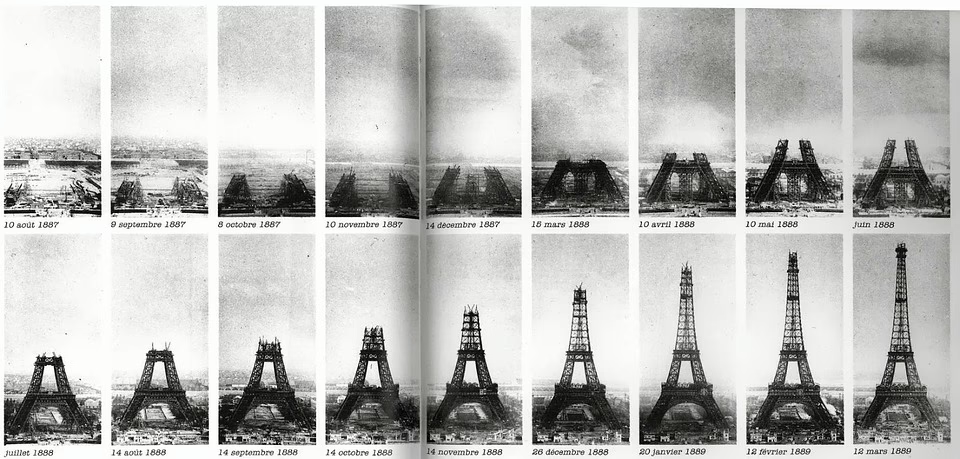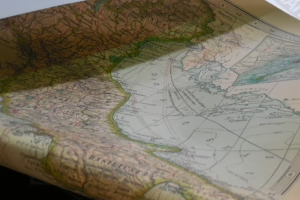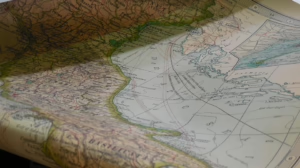Revolutions that Redefined Nations: A Look at Key Historical Transformations
Introduction
Revolutions have played a pivotal role in shaping nations throughout history. From the tumultuous upheavals of the 18th century to the political movements of the 20th and 21st centuries, revolutions have redefined social structures, governance, and national identities. This article examines several key revolutions that transformed nations and their legacies, including the American Revolution, the French Revolution, the Russian Revolution, and the Arab Spring.
The American Revolution (1775–1783)
Background
The American Revolution emerged from a confluence of various political, social, and economic tensions. Colonists in the Thirteen American Colonies grew increasingly dissatisfied with British rule, particularly with issues such as taxation without representation, restrictive trade practices, and the lack of political autonomy.
Key Events
-
The Boston Tea Party (1773): This act of defiance against British taxation galvanized colonial sentiment against the Crown.
-
The Declaration of Independence (1776): Authored primarily by Thomas Jefferson, this document articulated the colonies’ aspirations for self-determination and civil liberties.
-
The Treaty of Paris (1783): This agreement formally ended the war, recognizing the sovereignty of the United States and marking the birth of a new nation.
Impact
The American Revolution not only established the United States as an independent nation but also inspired subsequent revolutionary movements worldwide. The core principles of democracy, liberty, and equality set forth in the Declaration of Independence have remained influential, shaping modern democratic ideologies.
The French Revolution (1789–1799)
Background
The French Revolution stemmed from the absolute monarchy’s failure to address social inequalities, economic woes, and political discontent. By the late 18th century, France was burdened by debt and widespread poverty, leading to the formation of the Third Estate, which represented the common people.
Key Events
-
Fall of the Bastille (July 14, 1789): Often considered the revolution’s symbolic beginning, this event represented the attack on tyranny.
-
The Declaration of the Rights of Man and of the Citizen (1789): This document proclaimed the principles of individual rights and collective national sovereignty.
-
Reign of Terror (1793–1794): Radical elements within the revolution led to a period of violence, resulting in the execution of thousands, including King Louis XVI and Queen Marie Antoinette.
Impact
The French Revolution significantly influenced global revolutionary thought by promoting ideas of citizenship, secular governance, and fundamental human rights. It destabilized monarchies across Europe and inspired future revolutions, including those in Latin America and beyond.
The Haitian Revolution (1791–1804)
Background
The Haitian Revolution was unique as it marked the first successful slave uprising that led to the establishment of Haiti as a free nation. Influenced by the French Revolution, enslaved Africans on the plantation colony of Saint-Domingue fought against colonial rule.
Key Events
-
The Uprising of 1791: Led by figures such as Toussaint L’Ouverture, enslaved people began a systematic revolt against the plantation owners.
-
Abolition of Slavery (1794): The National Convention in France abolished slavery in the French colonies, though this decision was not uniformly applied.
-
Independence (January 1, 1804): Haiti became the first independent black-led nation after successfully defeating French forces.
Impact
The Haitian Revolution inspired enslaved people and abolitionist movements worldwide while instilling fear in slave-holding countries. It raised significant questions about race, freedom, and human rights that resonated in future political discourses.
The Russian Revolution (1917)
Background
The Russian Revolution unfolded amidst widespread dissatisfaction with the Tsarist autocracy, exacerbated by World War I’s devastating toll on the populace. Economic hardship, military failures, and social unrest set the stage for change.
Key Events
-
February Revolution (March 1917): This initial phase resulted in the abdication of Tsar Nicholas II and the establishment of a provisional government.
-
October Revolution (November 1917): The Bolsheviks, under Vladimir Lenin, seized control, signaling a radical shift towards communism.
Impact
The Russian Revolution led to the creation of the Soviet Union and the emergence of a new ideological landscape defined by communism. It influenced socialist movements internationally, contributing to the geopolitical tensions of the 20th century, including the Cold War.
The Chinese Revolution (1949)
Background
The Chinese Revolution unfolded in a context of imperialism, civil war, and socio-political turmoil. Following years of conflict between the Kuomintang and the Chinese Communist Party, popular discontent grew against corruption, inequality, and foreign domination.
Key Events
-
Long March (1934–1935): This strategic retreat of the Communist forces solidified Mao Zedong’s leadership.
-
Civil War (1945–1949): The final push resulted in the Communists’ victory, leading to the establishment of the People’s Republic of China.
Impact
The Chinese Revolution transformed China into a communist state, redefining social structures, economic practices, and international relations. The repercussions of this revolution have been profound, shaping China’s policies and global interactions to this day.
The Iranian Revolution (1979)
Background
The Iranian Revolution was characterized by widespread dissatisfaction with the Shah’s authoritarian regime, Western influence, and a lack of democratic freedoms. The revolution united various factions, including secular leftists and religious leaders.
Key Events
-
Popular Protests (1978): Massive demonstrations led by religious figures, particularly Ayatollah Khomeini, challenged the regime.
-
Fall of the Shah (January 16, 1979): The Shah’s departure marked the culmination of the revolutionary struggle, leading to the establishment of an Islamic Republic.
Impact
The Iranian Revolution reshaped the Middle East’s political landscape, highlighting the tensions between modernity and tradition, secularism and faith. It inspired Islamist movements worldwide and demonstrated the potential for grassroots mobilization against established powers.
The Arab Spring (2010–2012)
Background
Beginning in Tunisia in late 2010, the Arab Spring was sparked by grievances over corruption, unemployment, and autocratic governance. Social media played a crucial role in mobilizing citizens and spreading revolutionary fervor across the region.
Key Events
-
Tunisia’s Revolution (December 2010): The self-immolation of Mohamed Bouazizi sparked mass protests, leading to the resignation of President Zine El Abidine Ben Ali.
-
Syria’s Civil War (2011): Initially a peaceful protest movement demanding reforms, it devolved into a brutal conflict that continues to this day.
Impact
While it initially suggested a wave of democratization across the region, the aftermath of the Arab Spring has been mixed, with some nations experiencing civil strife and others returning to authoritarianism. Nonetheless, it fundamentally altered the political landscape of the Middle East and North Africa.
Conclusion
Revolutions have repeatedly served as catalysts for change, often reshaping nations and principles across the globe. From the American and French Revolutions, which sparked modern democratic ideals, to the Iranian and Arab Spring revolutions, which challenged existing power structures, each transformative moment has left an indelible mark on history. As we continue to witness revolutions in various forms today, it is essential to understand their historical context and the lasting implications they hold.
References
- Wood, Gordon S. The Radicalism of the American Revolution. Vintage, 1993.
- Lefebvre, Georges. The French Revolution: From 1789 to 1799. Columbia University Press, 1962.
- Dubois, Laurent. A Colony of Citizens: Revolution & Slave Emancipation in the French Caribbean, 1789-1804. University of North Carolina Press, 2004.
- Pipes, Richard. The Russian Revolution. Knopf, 1990.
- Meisner, Maurice. Mao’s China and After: A History of the People’s Republic. Free Press, 1999.
- Khomeini, Ruhollah. Islamic Government: Governance of the Jurist. 1970.
- Bellin, Eva. “Reconsidering the Robustness of Authoritarianism in the Middle East: Lessons from the Arab Spring.” Comparative Politics, vol. 44, no. 2, 2012, pp. 127-149.
This overview highlights the significant revolutions that have reshaped nations and their legacies. As societal dynamics evolve, the lessons from these historical transformations continue to resonate in today’s global political climate.


























Add Comment